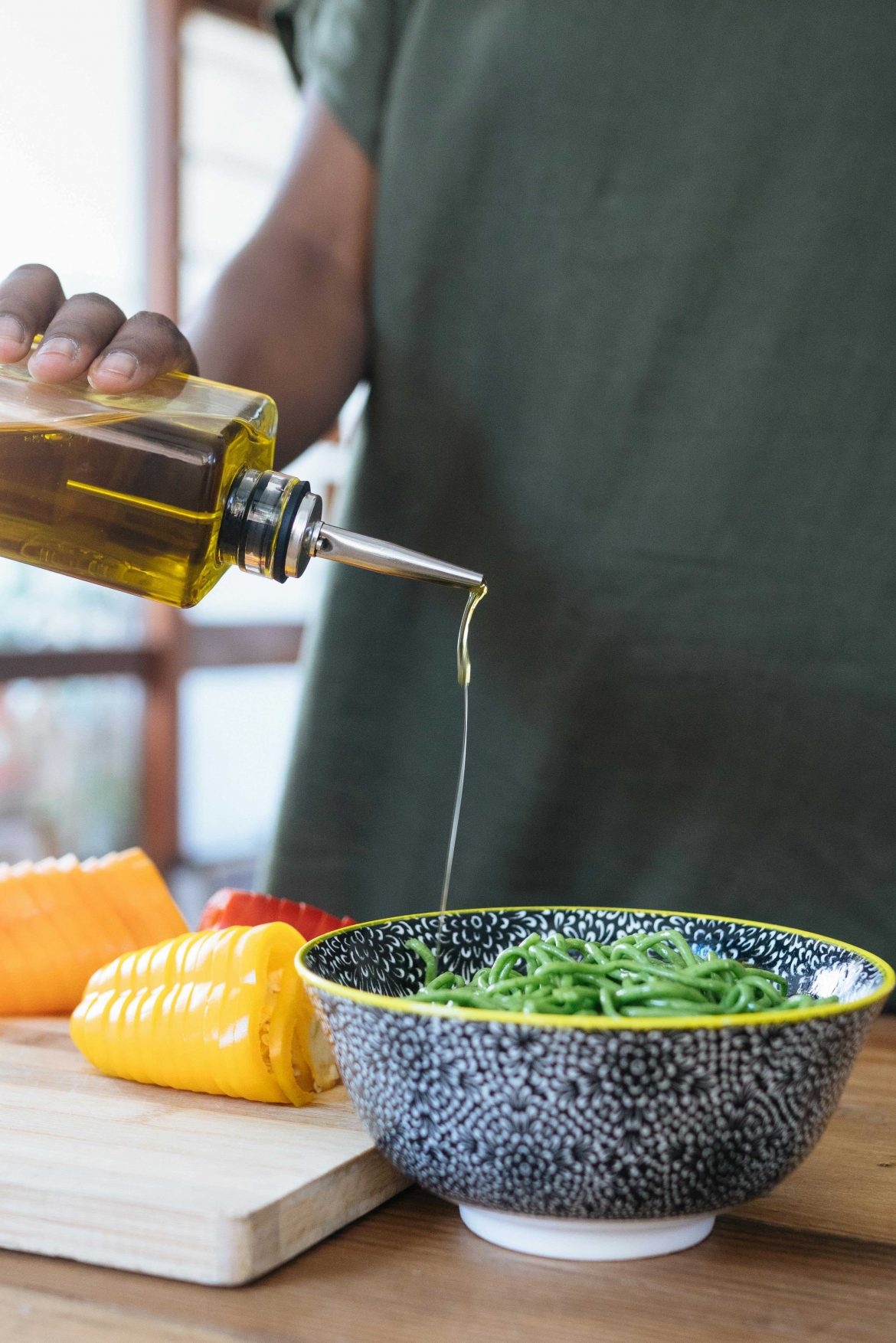Oil is one of the top staples in kitchens across the world. Without it, cuisines would be vastly different. Can you imagine a world without salad dressings, mayonnaise, aioli, fried chicken, fritters, and curries? Bleak. However, as fantastic and tasty these dishes are, there is still a concern about how healthy oils actually are. With so many types available, we’ll be zoning in on the most popular: olive oil and seed oils.
Let’s dive into what science really says about olive oil vs. seed oils.
Olive oil
A staple in Mediterranean cuisine, olive oil has many health benefits. Whether Extra Virgin Olive Oil (EVOO), Virgin Olive Oil, Refined Olive Oil, or Olive-Pomace Oil is consumed, studies have shown that all types can lower the risk of heart disease by 15%. This can be attributed to its monounsaturated fatty acids (which contain vitamins and minerals) and polyphenols (which are macronutrients found in plants).
Another study found that, in addition to lowering the risk for heart disease, olive oil can also lessen the risk of type 2 diabetes, prevent neurodegenerative diseases (like Alzheimer’s), aid in anxiety and depression, and prevent oxidation and inflammation in the body.
In particular, EVOO is rich in antioxidants and Vitamin E, and helps to protect cells against LDL cholesterol more than other types of olive oil (since anything after EVOO is processed after extraction, lessening some nutritional qualities). Additionally, research has found that EVOO lowers blood pressure and improves HDL, glucose levels and weight management.
Although EVOO doesn’t have as high a smoke point as the rest of the olive oil types, it is still safe to cook with, in comparison with other fruit and seed oils.
Seed oils
Critics have nicknamed some seed oils “the hateful eight”, referring to the top eight seed oils:
- canola,
- corn,
- cottonseed,
- grapeseed,
- soy,
- rice bran,
- sunflower, and
- safflower.
Research has shown that many seed oils, including the top eight, have high levels of omega-6 fatty acids compared to omega-3 fatty acids (which are super healthy), which can cause chronic inflammation, leading to increased risk of developing type 2 diabetes, heart disease and cancer. However, more recent studies have shown that omega-6 fatty acids have opposite effects: they may be powerful anti-inflammatories and lower the ‘bad’ LDL cholesterol in our blood.
Both omega-3 and omega-6 fatty acids are essential fatty acids: our bodies need them, but can’t produce them, so it’s important to incorporate a healthy amount in our diets. Before the 20th century, humans did not have access to extracted, let alone processed oils, and their consumption of omega-3 fatty acids to omega-6 fatty acids was around 1:1. Nowadays, the Western diet has shifted so dramatically that this ratio may be as high as 20:1.
The contradictory research on the consumption of omega-6 fatty acids has left many consumers confused about the overall health status of seed oils: to consume or not to consume. However, the research is clear on the negative health effects of heated seed oils. Think deep-frying oils and hydrogenised oils. The high heats or processes alter the chemical bonds found in these oils that can increase the amount of saturated fats, which increase the risk of cardiovascular disease, higher cholesterol, type 2 diabetes, and more.
If you are concerned, consider limiting processed foods high in omega-6 fatty acids, such as baked treats, chips, deep-fried fast foods, or takeout meals, as these have proven effects on increased risks to health.
Final verdict
Olive oil is a clear winner in terms of heat exposure, vitamins and minerals present, and limited processing. However, it can take quite a chunk out of your food budget, making it less sustainable to incorporate into your daily diet. Seed oils have a lot of contradicting research, but are generally safe when choosing minimally processed varieties and avoiding cooking with them at high temperatures.

